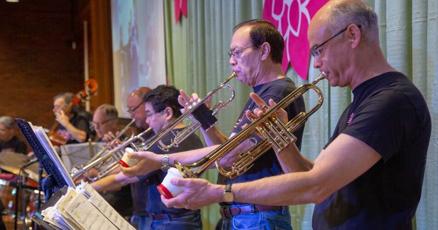Echoes of Resilience: Minidoka Swing Band Resurrects Untold Stories of Internment Through Music

In a dark chapter of American history, World War II marked a devastating period of injustice for Japanese Americans. During the height of wartime hysteria and racial prejudice, hundreds of thousands of loyal citizens were suddenly stripped of their fundamental rights and forcibly uprooted from their homes and communities. Driven by fear and unfounded suspicion, the United States government orchestrated a massive displacement, herding Japanese American families into remote internment camps scattered across the country.
These innocent individuals—many of whom were American-born citizens—were torn from their livelihoods, businesses, and neighborhoods, subjected to harsh living conditions and profound discrimination. Their only "crime" was their Japanese ancestry, despite most having no connection to Japan beyond their heritage. The internment represented a shocking betrayal of constitutional principles, a painful reminder of how fear and racism can override basic human rights and democratic ideals.
The internment camps became symbols of systemic racism, where entire families were confined behind barbed wire, their lives disrupted and their dignity systematically eroded. This traumatic episode stands as a stark warning about the dangers of prejudice and the importance of protecting civil liberties, even in times of national tension.








